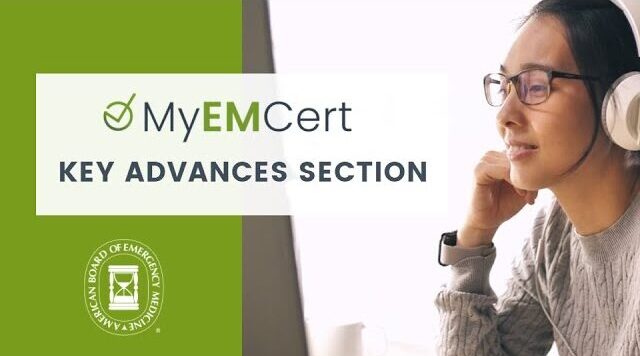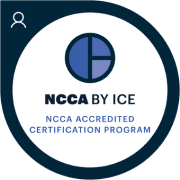Key Advances
Prepare for Your MyEMCert Module
Each MyEMCert module will include a section of questions based on Key Advances in the practice of Emergency Medicine. They include clinical policy alerts, practice advances, and suggestions from the literature.
Key Advances can be pulled from any current synopsis provided by ABEM and will not necessarily be related to the module topic.
Clinical Policy Alerts
ACEP Seizure Patients
ACEP Acute Heart Failure
AHA ACLS Updates
AHA Pediatric Advanced Life Support
Adult Patients with Community-Acquired Pneumonia
Febrile Infants
Pediatric Readiness
Practice Advances
Acute Asthma in Adults
ED Management of A-Fib with RVR
Noninvasive Respiratory Support
Pediatric Status Epilepticus
Procedural Sedation for Adults
Procedural Sedation for Children
Stroke
Looking for Knowledge Advancements in EMS or MedTox instead?
Why Do MyEMCert Modules Include Key Advances?
To facilitate learning. Stay up-to-date with clinically relevant emerging literature.
To amplify medical discoveries that you can use to improve patient care.
To keep up with an evolving specialty. Once widely adopted, Key Advances can move to the core section of modules.

Do you have an idea for a Key Advance topic?
Submit your recommendations! The ABEM Board reviews suggestions, and some are integrated into modules.
Key Advances Disclaimer
MyEMCert integrates emerging concepts with patient care. Due to the dynamic nature of research and adoption of advances into clinical practice, some of the key advances will become the standard of care and others will be replaced or modified as more information accumulates.
The information in the Key Advance synopses cannot replace physician judgment, cannot describe every possible clinical variation, and cannot be construed to be inflexible standards. Every medical encounter must integrate a physician’s clinical judgment. The treatments, procedures, and medical conditions described in MyEMCert do not constitute any representation of a de facto standard of care.
In choosing a specific topic, clinical policy, or citing an article, ABEM is not endorsing the authors or findings; rather it is purely an attempt to advance knowledge translation in the specialty of Emergency Medicine. This lack of endorsement is especially true for medical blogs or Free Open Access Medical Education (FOAM) websites that ABEM adds for additional reading. Those sites frequently include non-peer reviewed narratives and opinions. Articles, research, and blogs may present controversial or divergent opinions.
Neither the authors nor any other party who has been involved in the preparation or publication of this work warrants that the information contained herein is in every respect accurate or complete, and they disclaim all responsibility for any errors or omissions or for the results obtained from use of the information contained in this work. Readers are encouraged to confirm the information contained herein with other sources and to consider every clinical decision with respect to the unique characteristics of each patient.



